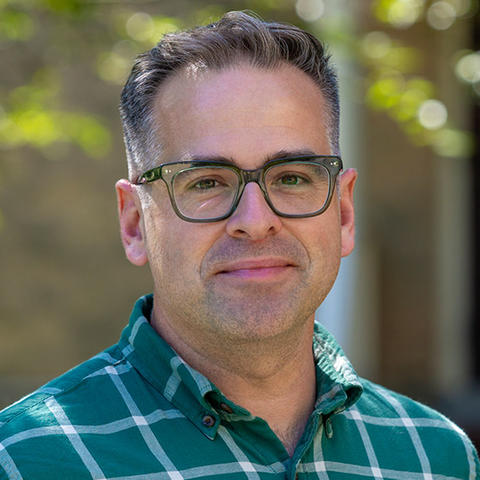Haverford Receives $2.5 Million Mellon Foundation Grant to Create The Graterford Archive

Photo by Patrick Montero.
Details
The project, which builds upon 2022’s Imagining Abolitionist Futures Initiative, will preserve the stories of creative leadership that emerged from State Correctional Facility - Graterford.
Haverford College has received a three-year, $2.5 million grant from the Mellon Foundation to develop and implement The Graterford Archive, which will gather and preserve the stories of creative, participatory leadership that emerged from State Correctional Facility - Graterford, in Montgomery County, Pennsylvania. The project is an extension of the year-long Hurford Center for the Arts and Humanities’ (HCAH) Imagining Abolitionist Futures Initiative, which, in 2022, explored the power of the arts and humanities to build reparative practices and institutions to move beyond a system fueled by racism and violence.
Drawing on long-standing collaborations with activists and organizers who were incarcerated at Graterford, the project will include a digital archive of oral histories, photographs, and other media activated through community conversations and art installations. Concurrently, Haverford will develop and co-teach courses rooted in praxis informed by its partner justice-impacted leaders and, through a summer program, engage young people in Philadelphia to help record and present oral histories through video production assistance.
“Haverford College has a longstanding commitment to social justice and ethical engagement in addressing systems of inequity,” says Haverford College President Wendy Raymond. “Faculty, staff, and students have been honored and humbled to work with and learn from community members at Graterford and SCI Phoenix over the past decades. We are grateful to the Mellon Foundation for sharing our belief that this collaborative work in collecting, creating, and teaching through an archive of stories, histories, and actions will generate powerful momentum for change.”
The Graterford Archive will be stewarded by a project team of Haverford College faculty and staff in collaboration with an advisory team including the Youth Art and Self-Empowerment Program and the Youth Sentencing and Reentry Project, among others. Haverford’s project team comprises Executive Director of the Center for Peace and Global Citizenship (CPGC) Eric Hartman; Associate Professor of English Lindsay Reckson; artist, educator, and active member of the reentry community Akeil Robertson, who will serve as the project’s creative director; Professor of English and Director of HCAH Gustavus Stadler; and Curator of Rare Books and Manuscripts and Head of Quaker and Special Collections Sarah Horowitz.
In operation from 1929 to 2018, Graterford, located just 30 miles from Haverford’s campus, was the Philadelphia region’s major prison, housing 3,400 prisoners at any given time. In the year before its decommissioning, it accounted for 7.2% of all prisoners incarcerated in the Commonwealth of Pennsylvania. State Correctional Institution - Phoenix, now the largest prison on the East Coast, replaced Graterford and was built on its grounds.
“The creation of this archive allows us to talk about an ongoing phenomenon of bondage and alternative constructions of society that have existed in Black and brown communities since the inception of this nation,” says Robertson. “It represents a step forward in our capacity to speak and write about this history hand in hand with the folks who connect us to and remind us of a past that remains very present. Our hope is that the Graterford Archive will help orient us toward a new and beautiful future where no history is hidden.”
In preserving Graterford’s story, the project will create a life-affirming archive of liberatory practice oriented toward new futures. While many institutions of higher education across the nation have long-standing co-enrollment and archival programs with carceral institutions, the project will demonstrate an innovative approach to archive creation that, through a deeply communal practice, will illuminate both our history and our social roles in reproducing or dismantling mass incarceration.




